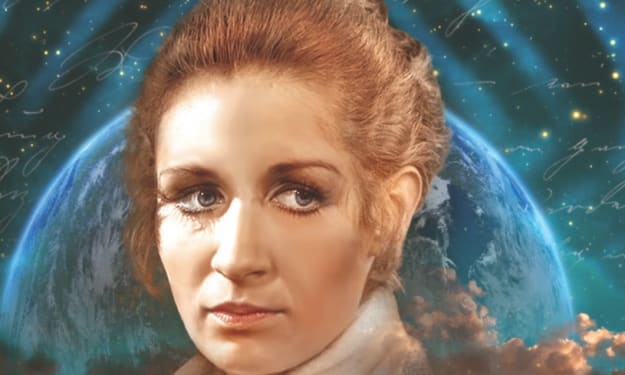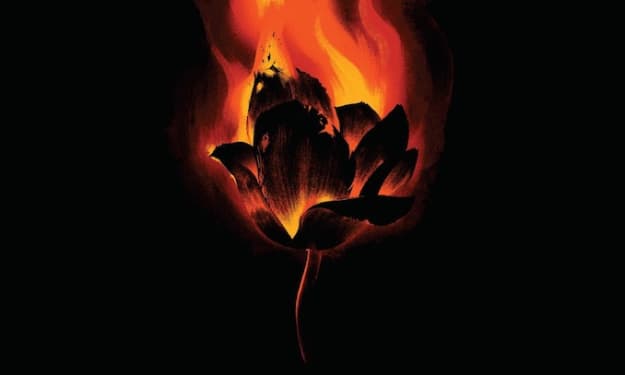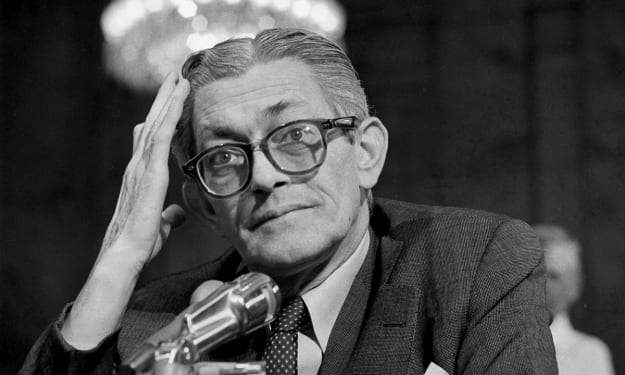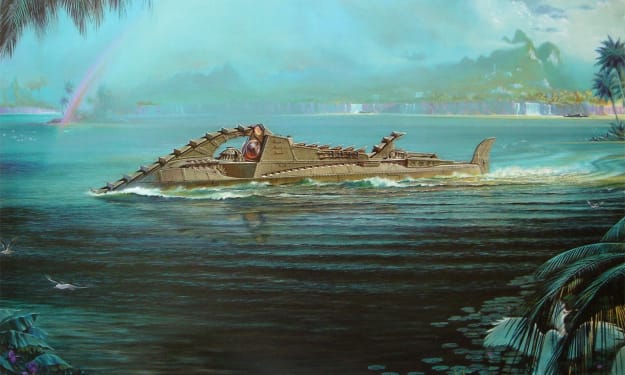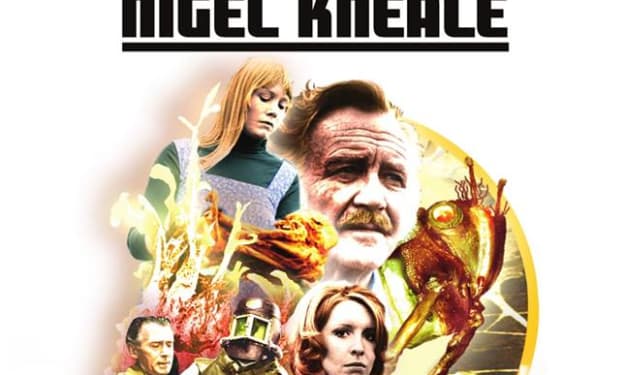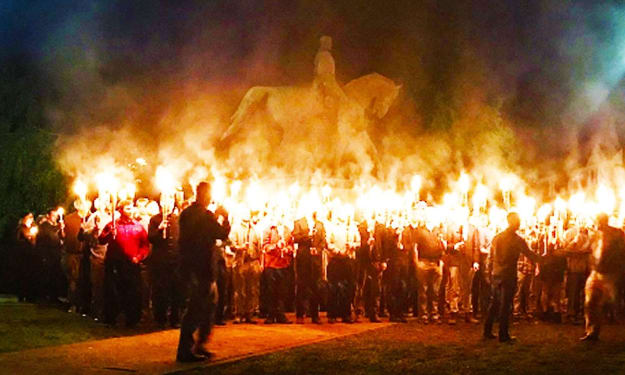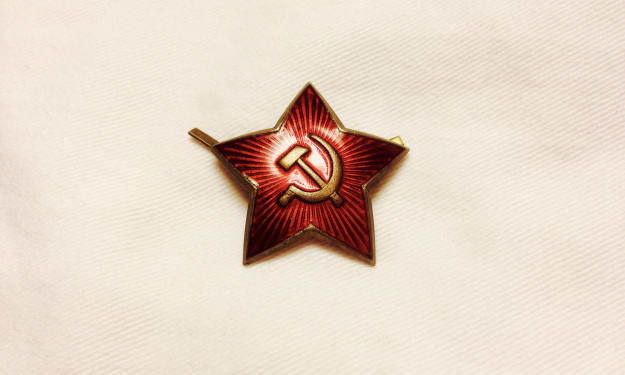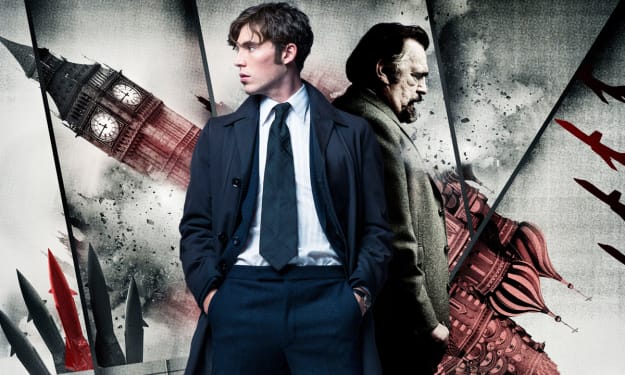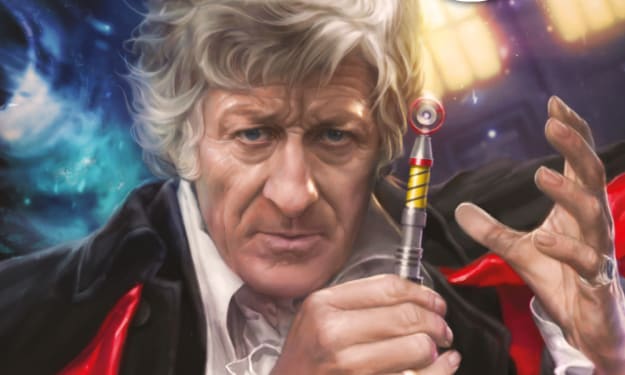Matthew Kresal
Bio
Matthew Kresal was born and raised in North Alabama though he never developed a Southern accent. His essays have been featured in numerous books and his first novel Our Man on the Hill was published by Sea Lion Press in 2021.
Stories (97/0)
Doctor Who: The Last Post Review
It's hard to believe that it's been over five years now since we lost Caroline John, the actress perhaps best known for playing Doctor Liz Shaw alongside Jon Pertwee's Third Doctor in Doctor Who's 1970 season. Yet despite appearing on the long-running series for a single season, fans never forgot the character and the actress returned to reprise the role numerous times on audio for Big Finish Productions in the years before her passing. The last story recorded before her passing, the appropriately titled The Last Post, stands as a tribute to character and actress alike.
By Matthew Kresal6 years ago in Futurism
How Would the U.S. Government Survive the Apocalypse?
Since the dawn of the nuclear age, how to survive a potential war fought with perhaps the most dangerous weapons invented by human beings has been a frequently asked —not just by private individuals, but by governments as well. Tracing the history of how the U.S. government has planned for a nuclear showdown and its aftermath, Garrett M. Graff's 2017 book Raven Rock: The Story of the U.S. Government’s Secret Plan to Save Itself — While the Rest of Us Die is a sobering but engrossing look into this shadowy world.
By Matthew Kresal7 years ago in The Swamp
The Spy Novel That Predicted the Rise Of Trump & "Russiagate"
A businessman turned politician wins the Republican nomination for President of the United States. He defeats his Democratic challenger and looks set to go into the White House, preaching policies favorable to Russia. Yet a British intelligence operative uncovers proof linking the campaign to the Russians, forcing an investigation that eventually leads not just to major campaign officials but to the President-Elect himself.
By Matthew Kresal7 years ago in The Swamp
Smiley, le Carré, & 'A Legacy Of Spies'
It's been more than a quarter of a century since the Berlin Wall came down and the Cold War ended. There's a generation that has grown up in its aftermath, looked back on what was done, and wondered whether it was worth all the toil and treasure paid out for it. It is perhaps not surprising, in a time of retrospection about that great and most secretive conflict of the twentieth century, that one of the authors who came out of it returns to it. John le Carré, himself briefly a British intelligence agent at the height of the Cold War, does so with his novel A Legacy Of Spies and he brings forth many of his best-known characters to do so.
By Matthew Kresal7 years ago in The Swamp
Angleton and Buckley's 'Spytime'
James Jesus Angleton is one of those enigmas that could only have come out of the Cold War era. The long-time head of the CIA's counter-intelligence wing after serving with the agency's precursor organization during World War II, few figures could claim to have had as much of an effect on the secret wars that marked the Cold War as he did. He was a man who remains highly controversial due to his methods, claims of massive Soviet infiltration of Western intelligence agencies, and dozens within the CIA who had their careers affected by his molehunt.
By Matthew Kresal7 years ago in The Swamp
A Soviet Britain?
The Cold War gave rise to many pieces of fiction looking at the decades long conflict between East and West. Few writers, though, seemed to have taken the time to have imagined what it might be like if the East came forth to occupy one of the major Western powers. One who did was prolific thriller writer Ted Allbeury who created a vision of a Britain under Soviet occupation with his 1982 novel All Our Tomorrows.
By Matthew Kresal7 years ago in The Swamp
Kevin J. Anderson's 'Captain Nemo'
There are few authors whose works have stood the test of time more than Jules Verne. With a handful of classic novels and characters, he created timeless tales of adventure and science fiction. Suppose though that those tales and some of his most iconic characters had a basis in fact?
By Matthew Kresal7 years ago in Geeks
The Kneale Legacy: An Interview with Andy Murray
Nigel Kneale might well be the most important television writer you've never heard of. If you have enjoyed a piece of British science fiction made since at least the 1960s, chances are that you've encountered something either written by or influenced by his writings. It could be Doctor Who, its spin-off series Torchwood, or even works from across the Atlantic such as Stephen King's The Tommyknockers.
By Matthew Kresal7 years ago in Futurism
Dear Mr. President, Condemn The Alt-Right
Watching the events in Charlottesville unfold, I've been trying to collect my thoughts. To try and say something worthwhile about the whole mess, even before someone decided to use their car to ram through a crowd of protesters. That it's come to this, in 2017 America, simply boggled my mind.
By Matthew Kresal7 years ago in The Swamp
Stalin's American Spies
There is an old saying that truth is often stranger than fiction. Works of non-fiction can often prove that to be the case, revealing sometimes hidden or forgotten stories from our history. The Cold War, that epic conflict of ideologies fought largely in the shadows and still influencing the world we live in today, is just such an example. While so many great fictional spy stories were inspired by it ranging from Ian Fleming's James Bond novels to John le Carré's George Smiley, the real world of Cold War espionage can be just as fascinating as any thriller. The non-fiction work The Haunted Wood proves that to be the case with its exploration of the Americans who spied for the Russians in the 1930s and 1940s.
By Matthew Kresal7 years ago in The Swamp
Spies, Moles, And 'The Game'
It seems as though the Cold War spy thriller is making something of a come back in recent years. The last few years have seen a spate of new adaptations of the classic Cold War era works of author John le Carre ranging from the Oscar nominated film adaptation of Tinker Tailor Soldier Spy to a slew of BBC audio drama adaptations of the various novels. Authors such as Charles Cumming in his novel The Trinity Six have also explored the legacy of the Cold War as well. Yet there's also been new tales told as well, pastiches of a thought dead genre. One particularly interesting one was the BBC's six part thriller The Game, created by Toby Whithouse, which took viewers into MI5 in early 1970s Britain.
By Matthew Kresal7 years ago in Geeks
Doctor Who: Heralds Of Destruction Review
Ever since Doctor Who came back to our screens in 2005, it seems as though past doctors have been sidelined somewhat in prose. Indeed the novel range featuring them disappeared, there have only been sporadic novels since then, and their appearances in multi-Doctor comic arcs. It's only been in the last couple of years that Titan Comics has sought to readdress the balance somewhat with a string of miniseries featuring past Doctors. The latest features the Third Doctor (played on-screen by Jon Pertwee between 1970 and 1974) and sees a return to Who by writer Paul Cornell. Cornell's past Who works include both the novel and later TV adaptation of Human Nature as well as the 2005 episode Father's Day and the groundbreaking 1991 Who novel Timewyrm: Revelation. He was also, back in the day, not a fan of this era at all. Which makes it all the more interesting that what he wrote is essentially something of a blast from the past for this Doctor and Cornell's apparent farewell to Who as a writer.
By Matthew Kresal7 years ago in Futurism

